Mon - Fri: 8am - 5pm, Sat - Sun: Closed

6-36 Month Warranties
We Ship Local.
Hablamos Español.
Connect with
Spotting Flood-Damaged Engines & Transmissions
Flood Damaged Engine Signs
Warning Signs of Flood Damage
When Houston storms hit, flood-damaged vehicles often appear on the resale market. Spotting early flood damaged engine signs can help buyers avoid expensive repairs. Key indicators include a waterline on the block or intake, dried silt in sensors or connectors, and milky engine oil or transmission fluid, which signal water contamination.
Other signs of damage include rust inside valve covers, swollen paper gaskets, and clogged air filters. Water in transmission symptoms like slipping gears or hesitation may appear once the vehicle has dried. If ignored, these issues can lead to complete powertrain failure. In flood-prone areas such as Houston and the Gulf Coast, thorough inspections are essential before purchasing any used engine or transmission.
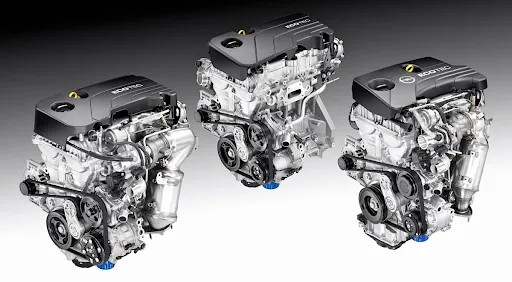
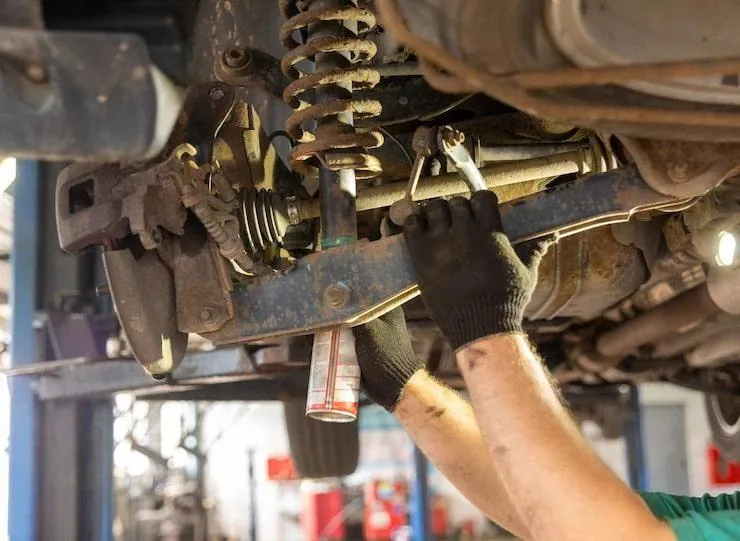

A detailed inspection of wiring and electronics is crucial when checking for flood damage. Corrosion in wiring harness connectors can cause long-term electrical problems that are difficult and expensive to diagnose later. Buyers should carefully inspect fuse boxes, relay housings, and ECU plugs for any signs of moisture damage, rust, or residue. These components are especially vulnerable in flood-affected vehicles. If such symptoms are present, the vehicle should either be avoided or tested thoroughly before purchase to ensure future reliability and performance.
Pre-Purchase Inspection Checklist and Steps
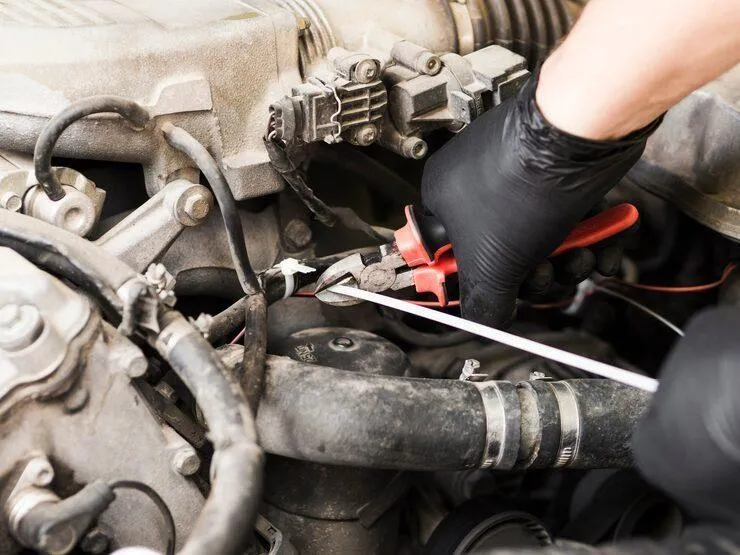
The safest way to avoid buying flood-damaged components is to schedule a thorough used engines inspection before purchase. Mechanics often use borescope tools to inspect inside cylinders for rust or water damage that may not be visible externally. Additionally, compression or pressure testing helps detect hidden internal issues that a simple visual check can miss, ensuring the engine’s health and performance.
For buyers purchasing parts remotely, requesting fluid samples and detailed photos is essential. Reputable sellers typically provide close-up images of the oil pan, valve train, and dipstick to show condition. When buying a used transmission, it’s important to verify the fluid condition is free of moisture contamination. These precautions help reduce the risk of inheriting long-term issues and ensure you receive reliable, flood-free components that will perform well.
Another smart move is to ask about a seller’s inspection process. Reliable companies like Houston Engines test and grade components before resale to ensure quality. Reviewing their methods builds trust and helps buyers avoid vehicles or parts that may have survived a Texas salvage title flood but still carry hidden problems. Knowing the thoroughness of the inspection gives buyers confidence in their purchase and reduces the risk of inheriting costly, flood-related issues in used engines or transmissions.
Title Concerns and Insurance Disclosures
Buying a flood-damaged vehicle carries several paperwork and disclosure risks. In Texas, a Texas salvage title flood designation indicates that the vehicle has been officially declared water-damaged by insurance companies. While these vehicles may still operate, they often carry hidden issues that can lead to costly repairs. It is essential for buyers to verify the title status and review any insurance disclosures thoroughly before committing to a purchase. This helps avoid surprises related to the vehicle’s flood history.
Another common risk is the sale of storm-damaged vehicles without proper disclosure. After major storms and hurricanes, many Houston flood vehicles are quickly cleaned and resold without comprehensive inspections. While checking VIN history reports can reveal some flood damage, buyers should also perform detailed physical inspections to assess the actual condition of the car or parts. Visual cues and thorough assessments help uncover hidden damage that may not be recorded in reports.
For buyers interested in used parts like engines or transmissions, insurance claims related to flood damage must be fully disclosed. If a component was removed from a flood-affected vehicle, sellers should provide full transparency about its history. Asking about the seller’s testing procedures ensures that the used transmission or engine has undergone proper inspections, reducing the risk of purchasing damaged components.
Reputable companies like Houston Engines work to minimize these risks by grading and certifying parts before resale. They also offer hurricane car buying tips to help customers make informed choices after Gulf Coast storms. It’s important to consider resale value as well, since even repaired vehicles or parts with flood history can develop ongoing electrical or mechanical problems, making thorough vetting essential for long-term reliability.
Maintenance After Driving in High Water
Sometimes, drivers unknowingly expose their vehicles to water during storms, especially when driving through high water. It’s important to take immediate steps afterward to protect your vehicle from long-term damage. The first priority is to check the engine and transmission fluids for signs of contamination. If the transmission fluid appears milky, this indicates water intrusion and requires immediate draining and replacement to prevent internal corrosion and costly damage.
Next, thoroughly inspect the electrical system, as water can cause rapid corrosion in wiring harness connections. Corroded connectors often lead to intermittent electrical problems that worsen over time. Cleaning the connectors and applying dielectric grease can help protect these vital connections. Houston-area drivers should also monitor critical components like the alternator, starter, and sensors after water exposure since these parts are vulnerable to damage from moisture. Taking these proactive steps ensures your vehicle maintains reliability and helps avoid expensive repairs in the future caused by flood or water damage. Prompt action is key to preserving vehicle health after exposure to water.
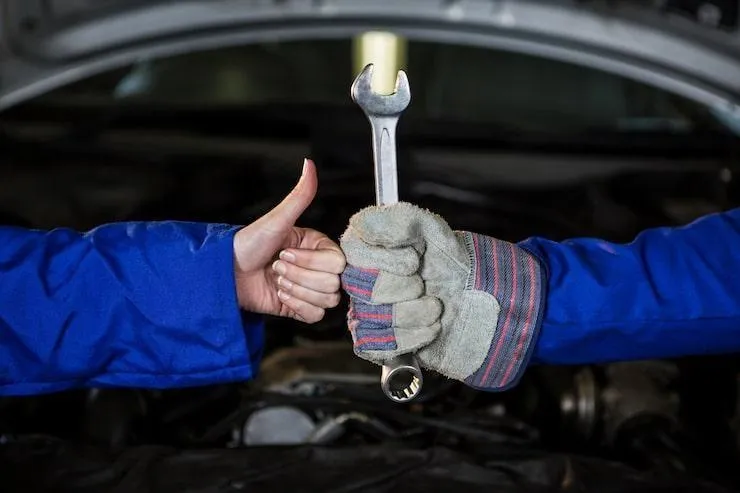
Houston Storm Vehicle Inspection Tips
Living in Harris County and along the Gulf Coast means flood preparation is a crucial part of vehicle ownership. After major weather events, performing a quick Gulf Coast storm car checks routine can help uncover hidden damage. Inspect for dried mud beneath the dashboard, condensation inside gauges, and rust around mounting bolts. These signs often indicate whether a vehicle has been submerged or exposed to floodwaters, which could lead to long-term problems.
When buying used parts, always request fluid samples and compression test results to verify the condition. For those purchasing a used transmission, ask for documentation proving it has passed inspection. Sellers providing such proof greatly reduce the risk of hidden damage, ensuring the parts meet quality and reliability standards. This documentation is crucial for making informed buying decisions and avoiding costly repairs down the road.
Reputable sellers like Houston Engines are transparent about their inspection processes. Houston Engines openly shares details on their used engines inspection procedures, allowing buyers to understand what testing is performed before purchase. Knowing these methods helps customers feel confident about their investment and ensures they receive reliable components.
If you are ever unsure about the history of a vehicle or part, always contact us before purchasing. Our team specializes in identifying flood damaged engine signs and verifying that parts are free from water exposure. By taking these important steps, Houston buyers can protect themselves after severe storms and hurricanes, reducing risks associated with flood damage.
Get our latest news and promos
QUALITY ASSURED


SATISFACTION GUARANTEED

UNPARALLELED SUPPORT
Houston Engines
Proud Member

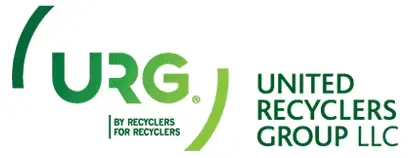
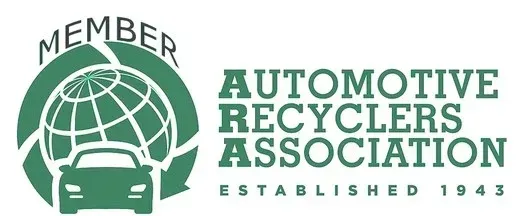
Social Media
Payments Accepted
Ship Via











